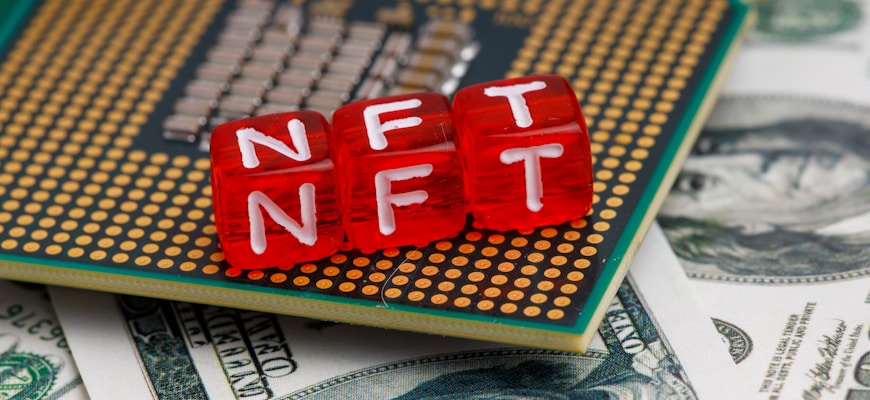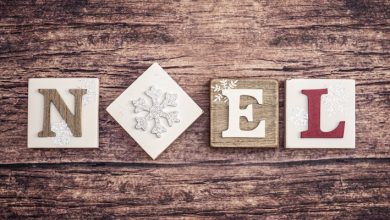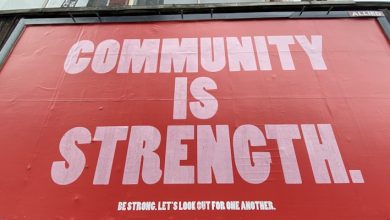Understanding NFT Marketplaces

- What are NFTs and how do they work?
- Exploring the different types of NFT marketplaces
- Key factors to consider when buying or selling NFTs
- The rise of NFT marketplaces in the digital art world
- Navigating the challenges and risks of NFT marketplaces
- Future trends and innovations in the NFT marketplace space
What are NFTs and how do they work?
NFTs, or Non-Fungible Tokens, have been gaining popularity in the digital art world. But what exactly are NFTs and how do they work?
An NFT is a unique digital asset that is stored on a blockchain. Unlike cryptocurrencies such as Bitcoin or Ethereum, which are fungible and can be exchanged for one another, NFTs are non-fungible, meaning each one is unique and cannot be replicated.
When an artist creates an NFT, they assign ownership and provenance to a specific digital file, such as a piece of art, music, or a video. This ownership is then recorded on the blockchain, ensuring that the NFT cannot be duplicated or tampered with.
One of the key features of NFTs is that they can be bought, sold, and traded on various NFT marketplaces. These marketplaces act as platforms where users can discover, buy, and sell NFTs using cryptocurrency.
When a user purchases an NFT, they receive a digital certificate of ownership that is stored on the blockchain. This certificate includes information such as the creator of the NFT, the date it was created, and any previous owners.
Overall, NFTs are revolutionizing the way digital artists can monetize their work and allowing collectors to own unique digital assets in a secure and transparent way.
Exploring the different types of NFT marketplaces
When it comes to exploring the different types of NFT marketplaces, it’s essential to understand the variety of options available to buyers and sellers. These platforms provide a space for creators to mint and sell their non-fungible tokens, offering a range of features and functionalities to cater to various needs.
One popular type of NFT marketplace is the open marketplace, where anyone can buy and sell NFTs without any restrictions. These platforms often have a wide range of collections available, allowing users to browse and purchase digital assets across different categories. Open marketplaces are ideal for those looking to explore a diverse selection of NFTs and discover new artists and creators.
Another type of NFT marketplace is the curated marketplace, which features a more selective collection of NFTs curated by a team of experts or based on specific criteria. These platforms often focus on quality over quantity, providing users with a more curated and exclusive experience. Curated marketplaces are popular among collectors and investors looking for high-quality and rare NFTs.
Additionally, there are white-label NFT marketplaces that allow brands and organizations to create their own customized platforms for minting and selling NFTs. These white-label solutions offer flexibility and control over the branding and user experience, making them a popular choice for businesses looking to leverage the power of NFTs for marketing and engagement purposes.
Overall, understanding the different types of NFT marketplaces is crucial for navigating the rapidly evolving landscape of digital assets. Whether you’re an artist looking to showcase your work, a collector searching for unique pieces, or a brand wanting to explore new marketing opportunities, there’s a marketplace out there to meet your needs and preferences. By exploring the various options available, you can find the perfect platform to buy, sell, or mint NFTs that align with your goals and interests.
Key factors to consider when buying or selling NFTs
When considering buying or selling NFTs, there are several key factors that you should take into account to make informed decisions. These factors can greatly impact the success of your transactions and overall experience in the NFT marketplace. Here are some important considerations to keep in mind:
- Marketplace Reputation: It is crucial to research and choose reputable NFT marketplaces with a history of successful transactions and positive user feedback.
- Transaction Fees: Different NFT marketplaces have varying fee structures, so it is essential to consider these costs when buying or selling NFTs to maximize your profits.
- Security Measures: Ensure that the NFT marketplace you choose has robust security measures in place to protect your digital assets and personal information from cyber threats.
- Market Trends: Stay informed about the current trends in the NFT market to make strategic decisions about when to buy or sell your digital assets for optimal returns.
- Legal Considerations: Understand the legal implications of buying and selling NFTs in your jurisdiction to avoid any potential conflicts or legal issues in the future.
By carefully considering these key factors, you can navigate the NFT marketplace with confidence and increase your chances of success in buying or selling digital assets. Keep these considerations in mind to make the most of your NFT transactions and stay ahead in this fast-growing market.
The rise of NFT marketplaces in the digital art world
The digital art world has seen a significant transformation with the rise of Non-Fungible Token (NFT) marketplaces. These platforms have revolutionized the way artists can monetize their work, providing them with new opportunities to showcase and sell their digital creations directly to collectors and art enthusiasts. As a result, NFT marketplaces have gained immense popularity in recent years, attracting both established artists and emerging talents looking to capitalize on the growing interest in digital art.
One of the key advantages of NFT marketplaces is the ability to establish provenance and authenticity for digital artworks. Through blockchain technology, each NFT is uniquely identified and recorded on a decentralized ledger, ensuring that the ownership and history of the artwork are securely documented. This level of transparency and security has instilled confidence in buyers, leading to a surge in transactions within the digital art market.
Moreover, NFT marketplaces have democratized the art world by providing a platform for artists of all backgrounds to showcase their work. Unlike traditional art galleries that often have strict curation processes, NFT marketplaces offer artists the freedom to exhibit their art without the need for approval from gatekeepers. This has led to a diverse range of artworks being made available to a global audience, fostering creativity and innovation within the digital art community.
In addition to empowering artists, NFT marketplaces have also created new opportunities for collectors to invest in digital art. The ability to buy, sell, and trade NFTs has opened up a new asset class for investors, attracting a growing number of art enthusiasts and speculators to the digital art market. As a result, the value of NFTs has skyrocketed, with some artworks fetching millions of dollars at auctions and sales.
Overall, the rise of NFT marketplaces has transformed the digital art landscape, offering a new way for artists to monetize their work, collectors to invest in digital assets, and art enthusiasts to explore a diverse range of artworks. As these platforms continue to evolve and innovate, they are poised to play a significant role in shaping the future of the art market, bridging the gap between the physical and digital realms of creativity.
Navigating the challenges and risks of NFT marketplaces
Navigating the challenges and risks of NFT marketplaces can be a daunting task for newcomers to the space. With the rapid growth of NFTs, there are several factors to consider when participating in these digital asset marketplaces.
One of the key challenges of NFT marketplaces is the issue of authenticity and provenance. Due to the digital nature of NFTs, there is a risk of counterfeit or stolen artwork being sold on these platforms. It is essential for buyers to conduct thorough research on the artists and the history of the NFT before making a purchase to ensure its legitimacy.
Another challenge is the volatility of the NFT market. Prices of NFTs can fluctuate wildly, making it difficult to predict the value of an asset in the future. It is crucial for investors to carefully assess the market trends and seek advice from experts before making any investment decisions.
Moreover, the issue of security is a significant concern in NFT marketplaces. With the rise of cyberattacks and scams targeting digital assets, it is essential for participants to use secure wallets and platforms to protect their investments. Implementing strong security measures such as two-factor authentication can help mitigate the risk of theft and fraud.
In conclusion, while NFT marketplaces offer exciting opportunities for artists and investors, it is essential to navigate the challenges and risks carefully. By conducting thorough research, staying informed about market trends, and prioritizing security measures, participants can make the most of this innovative digital asset class.
Future trends and innovations in the NFT marketplace space
The NFT marketplace space is constantly evolving, and there are several future trends and innovations that are shaping the industry. One of the key trends is the integration of blockchain technology to improve the security and transparency of transactions. Blockchain technology ensures that every NFT transaction is recorded on a decentralized ledger, making it tamper-proof and secure.
Another trend in the NFT marketplace space is the rise of fractionalized NFTs. This innovation allows users to own a fraction of an expensive NFT, making it more accessible to a wider audience. Fractionalized NFTs democratize the ownership of rare digital assets and open up new investment opportunities in the marketplace.
Additionally, the emergence of dynamic NFTs is revolutionizing the way digital art is created and experienced. Dynamic NFTs are programmable tokens that can change or evolve based on certain conditions. This innovation adds a new layer of interactivity and creativity to the NFT space, attracting both artists and collectors alike.
Furthermore, the development of decentralized autonomous organizations (DAOs) in NFT marketplaces is a trend to watch. DAOs are community-governed organizations that allow stakeholders to make decisions collectively. In the NFT space, DAOs can be used to curate collections, organize events, and govern the overall direction of a marketplace.



